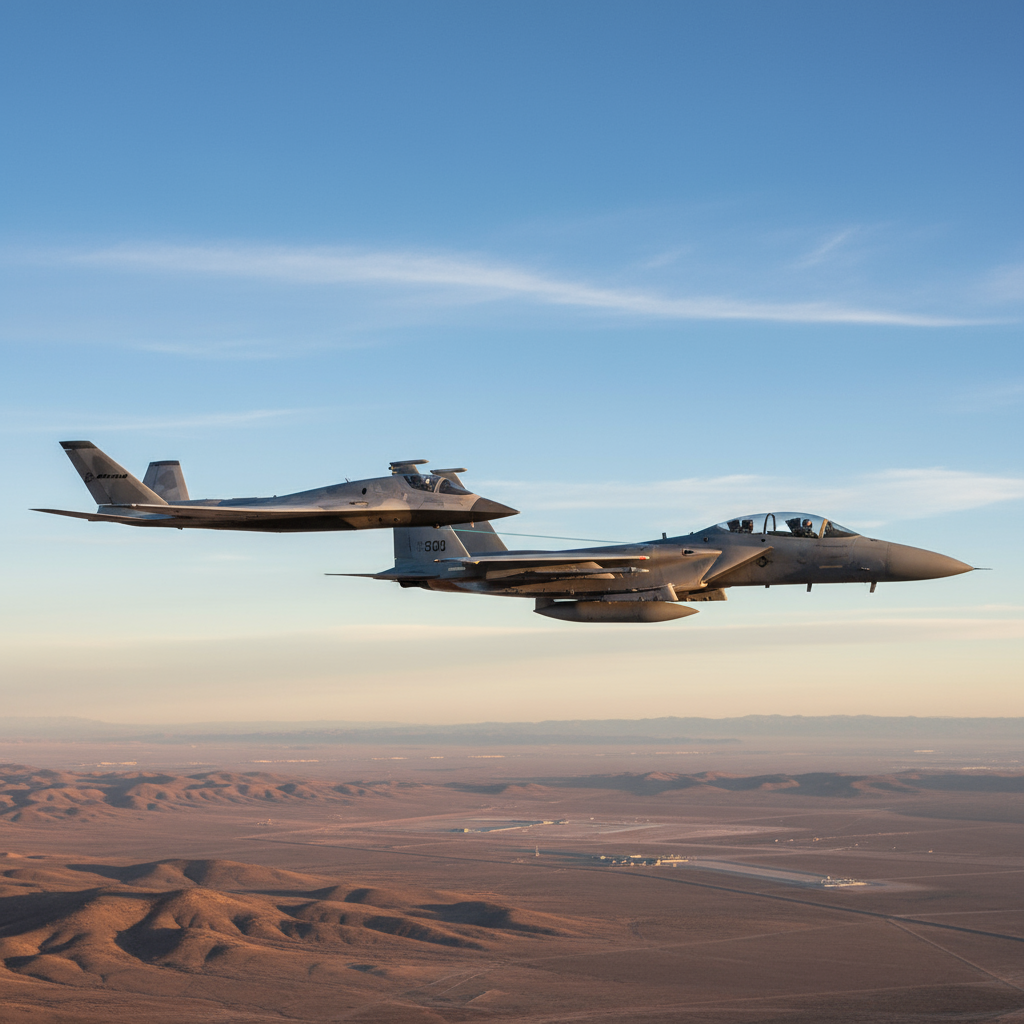Physical Address
304 North Cardinal St.
Dorchester Center, MA 02124
Physical Address
304 North Cardinal St.
Dorchester Center, MA 02124
Global aviation news tracker
Global aviation news tracker

Boeing is sketching a future where piloted jets and smart unmanned wingmen operate together on the battlefield.
Boeing unmanned aircraft concepts are being developed to support the United States Air Force (USAF) with greater autonomy and artificial intelligence–driven control systems. The program targets collaborative unmanned aircraft systems (UAS) that can fly alongside manned platforms to expand mission flexibility, reduce risk to crews and enable new tactics under broader USAF modernization efforts.
The focus is on systems that can operate with a high level of autonomy while still fitting into existing air operations. Boeing’s work aims to accelerate manned‑unmanned teaming — where a piloted aircraft delegates tasks to one or more unmanned partners — and to prototype control architectures that let unmanned assets take on scouting, electronic support or expendable roles.
Engineers are concentrating on robust autonomy layers, AI-driven decision aids, and secure communications that maintain control in contested environments. Rather than a single model, the effort appears to cover conceptual families of platforms and mission modules that can be tailored to intelligence, surveillance, reconnaissance (ISR) or tactical support roles. Boeing and the USAF plan iterative prototyping and testing phases to validate concepts and refine human‑machine interfaces.
Details such as specific airframe models, program timelines and contract identifiers were not provided in the initial overview; Boeing’s effort is positioned as an early-stage conceptual program that will feed into longer-term acquisition tracks. Expect follow-up announcements as prototypes reach flight testing and as the USAF defines integration points with existing squadrons and platforms.